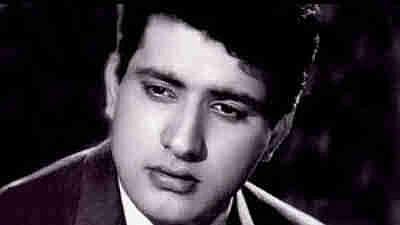
Manoj Kumar (1937-2025)
Credit: X/@akshaykumar
No one is to blame if Manoj Kumar was labelled ‘Mr Bharat’ after 'Shaheed' and 'Upkar'. 'Upkar' inspired the then prime minister Lal Bahadur Shastri to coin his now famous slogan, ‘Jai Jawan Jai Kisan’.
After all, Manoj went on to also make 'Purab Aur Pachhim', 'Roti Kapada Aur Makaan' and 'Kranti' in the next 15 years. While 'Upkar' earned him the President’s Gold Medal (the equivalent then of the National award), he was awarded the highest honour in Indian cinema, the Dadasaheb Phalke Award for lifetime achievement, in 2015.
But this versatile talent was much more than a mere Mr Bharat. He had made his way up the hard way.
His family went through terrible times after the Partition uprooted them from his native village of Jandyala Sher Khan, now in Pakistan.
As a refugee camp inmate on Delhi’s outskirts for two years, Manoj recollected trekking four kilometres daily for milk and bread. He attributed all his films’ emotional tension to those hard times.
A chance meeting with his filmmaker-cousin (Lekhraj Bhakri) brought him to Mumbai. Bhakri initially gave him cameo roles, but it was Rajendra Kumar who introduced Manoj to HS Rawail, who presented him as the hero in 'Kanch Ki Gudiyan' (1961). Manoj’s first taste of success was 'Hariyali Aur Rasta' (1961) with Mala Sinha.
Manoj was also ghost-writing short scenes for films for Rs 11 per scene. He then rewrote much of the dialogue for 'Woh Kaun Thi?', his first blockbuster. He also wrote, starred in and partly ghost-directed 'Shaheed', on his patriotic idol, Bhagat Singh.
Manoj, like V Shantaram and Raj Kapoor, became known as a better director than an actor. His only directorial on a non-deshbhakti theme, 'Shor', showcased his grasp on the medium beyond the patriotic genre, and is widely considered his most sensitive and accomplished work.
With this film, he also showed his grip over film editing. As he put it, “When I direct, I am ruthless with what I have written, cutting off great scenes in the interest of the film. And when I do the edit, I am ruthless even with the best-directed sequences if not really needed.”
A staunch Shirdi Sai Baba devotee, the actor turned lyricist with 'Shirdiwale Sai Baba', a film he wrote, starred in and presented, and in which he introduced Anup Jalota as a singer-composer. As it happened, his last recorded work in cinema was as a lyricist in 'Maalik Ek' (2010), another film on Sai Baba, with music by Jalota.
By the mid-1970s, even his other films over 10 years, including 'Do Badan', 'Sawan Ki Ghata', 'Patthar Ke Sanam', 'Neel Kamal', 'Yaadgar', 'Pehchaan', 'Beimaan' and 'Sanyasi' were all hits, and he also earned the tag of a King Midas who could do no wrong.
Manoj’s sense of music was exceptional, even in the songs of his outside films, working best with Kalyanji-Anandji, Laxmikant-Pyarelal and Shankar-Jaikishan. He introduced lyricists Santosh Anand and Rajkavi Inderjeet Singh ‘Tulsi’ and gave Nitin Mukesh a major break with all his songs in 'Kranti'.
With his rare blend of aesthetics and commercial instincts, Manoj Kumar will always remain an indelible part of Hindi cinema and one of the nicest human beings in showbiz